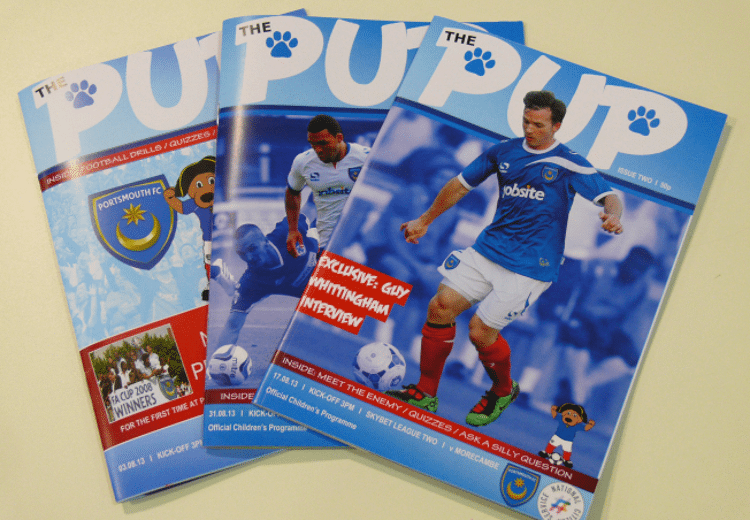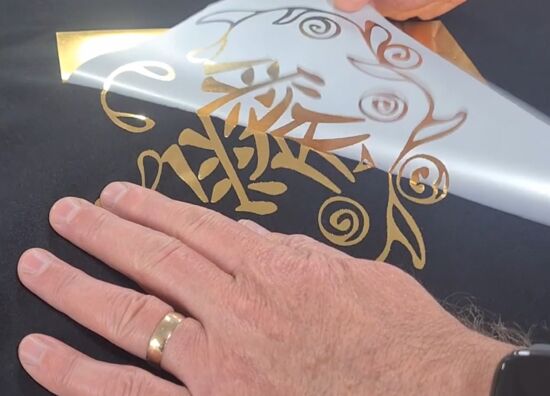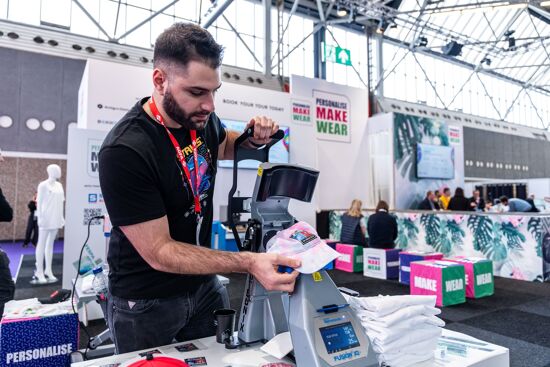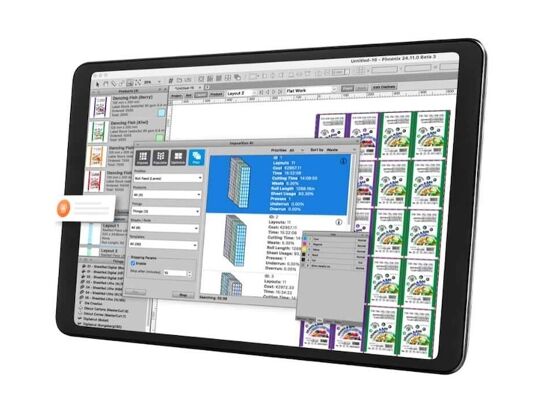Variable data printing for Wide Format projects

Laurel Brunner discusses how digital printing methods have one very powerful and unique advantage over all other printing methods. They can image data directly onto the page so that, as the page is being printed, the data stream can simultaneously change.
Because the data on it can be varied, each page in a print run can be customised, meaning you can have whatever you want on each page from personalisation to complex image variability. The fact that each page in a print run can be a different version of the file from one page to the next, creates immense potentials for sharing ideas.
Digital lives
Variable data conversations
Fortunately the principles of building variable data pages apply to much less ambitious types of work, but without the complexity. The most simple form of variable data production starts with very basic impositions or collections of individual data files imaged as single pages and printed on a large format press. This is how business cards often get produced, and how photolabs print your pictures: each file is positioned as tightly as possible onto a large format sheet, the sheet is imaged and printed and then cut into individual pages, cards or printed pictures. You can also use this approach for self-adhesive labels or scratch cards as well. Using imposition tools in this way is an easy means of getting value for money: print your jobs on a single sheet produced with a wide format digital press such as the EFI Pro 16H and then cut the sheet into single prints. You can use this model to produce multiple copies of say decals or small format posters at relatively low cost.
Match the tools to the task
There are many, many tools on the market for variable data print production. But there are not necessarily many print service providers with the expertise to use them effectively for all kinds of work. One of the most widely used and well established tools is XMPie, which is available in various shapes and sizes depending on the scale of the job it is expected to do. XMPie connects databases to the page or any other channel and includes analytics and campaign management in a fully automated environment, so it’s very powerful and can be used to develop extremely ambitious wild format communications projects. HP partners with XMPie to provide variable data options for all of its printing systems customers. Make sure to choose a print service provider with the scope to match your ambitions.
Equally powerful is EFI’s FreeForm which is part of EFI’s Fiery digital controller. This software can be used for a wide range of versioning and customised page printing and EFI have a handy training kit that you can download (https://www.efi.com/engb/products/fiery-servers-and-software/ fiery-workflow-suite/fiery-variable-dataprinting-solutions/freeform-kit/). It includes some sample databases in the form of Excel spreadsheets and templates so you can mess about with it to really understand how variable data printing works. You never know – you might even get hooked.
But it’s more likely that you will prefer to work with a print service provider who has experience with producing this type of work. You’ll need to ensure that your master files are production ready and that the data you want to use to vary each page is in a suitable format for production. You should also make sure that you have permission to use the data from the data owners. The General Data Protection Regulation which recently came into force requires this and takes a dim view of organisations that don’t respect its rules.
Boldly go!
Producing variable data wild format projects might seem like a lot of trouble for not much return, which is fair enough. However, efforts into variable data print communications have been shown to improve response rates in various situations, most clearly in direct mail campaigns. The usual expectation with direct mail used to be a 2% response. But with personalisation, versioning and customisation, responses improve to 15% to 40% and sometimes higher.
So the effort is definitely worth it but don’t try to become a data engineer yourself, because there are plenty of print service providers with the tools and the experience to help you. You can expect to pay a bit more, but the results you will get will more than outweigh the extra expense. Shop around and see what you find, but before you do that have a clear idea of what you want to achieve, make sure that your production files are ready to be printed and be ready to be amazed at the feedback you get.
The Wild Format guides are intended to expand awareness and understanding of the craziness that can be created on wide format digital printing devices, from floors to lampshades and everything in between.These guides are made possible by a group of manufacturers working together with Digital Dots. This article is supported by HP, EFI, Fujifilm, and Digital Dots.
Topics
Interested in joining our community?
Enquire today about joining your local FESPA Association or FESPA Direct
Recent news

Special Effects in DTF Will Make Your “Prints” More Memorable
The DTF market is expanding with new vendors and innovations like multi-head printers enabling diverse ink options (spot, neon). Decorative films offer streamlined special effects. Keypoint Intelligence tested metallic and glitter films, noting varied ease of use and wash durability. New technology using adhesive and foil directly promises further creative advancements in DTF.

SmartHub – Expectations, opportunities and why you should attend!
The SmartHub at Personalisation Experience 2025 in Berlin will showcase personalisation and smart production opportunities across industries like textiles. Featuring a Smart Factory Trail with brands like Inkcups and Trotec, and a conference with experts discussing AI, mass customisation, and profit strategies, it offers insights into reducing waste and boosting efficiency through digital methods. Panel sessions will explore growth, automation in textiles, and smart manufacturing.

How is AI revolutionising Large Format Print?
Nessan Clearly discusses how AI in print relies on data pattern matching, already enhancing software for large format providers. He predicts that this will result in increased AI integration in workflow planning, job queue management, colour correction, image upscaling, and predictive maintenance via sensors and vision systems, ultimately streamlining operations and offering greater flexibility.
.png?width=550)
Why are FESPA events the ideal place for visionaries to meet? With Harold Klaren from EFKA
We speak to Harold Klaren, International Sales Manager at EFKA about visionaries in print. Harold shares why he believes FESPA events are the ideal place for visionareis to meet.